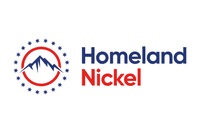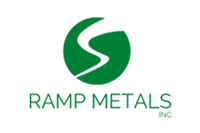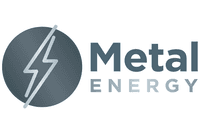Nickel Tipped to be Fastest-growing Battery Metal in EV Boom
Nickel demand is set to increase up to 19 times if under-construction lithium-ion production facilities come online as planned.
Speaking before the US Senate Committee on Energy and Natural Resources on Tuesday (February 5), Managing Director at Benchmark Mineral Intelligence Simon Moores delivered a sobering view of where the US ranks in the battery metals space.
In his testimony on outlook for energy and minerals, Moores said that as of 2019, “we are in the midst of a global battery arms race in which the US is presently a bystander” in both the control of raw materials and the manufacturing process in the creation of lithium-ion batteries for the electric vehicle market.
While he touched on the classics; cobalt, lithium and graphite — it was nickel that Moores tipped as set to be the fastest-growing battery metal raw material.
“As lithium-ion battery manufacturers reduce the amount of cobalt used in battery cells, nickel consumption rises and it does so in a major way,” said Moores.
Moores said that nickel — which is currently mostly used in the creation of stainless steel — is set to see its demand increase up to 19 times if under-construction lithium-ion production facilities come online as planned.
He highlighted China racing ahead in the construction of battery metal megafactories that bring all the raw materials together into the final product — though he said that the largest in the world was in US hands — Tesla’s (NASDAQ:TSLA) Gigafactory 1.
Moores said that overall the US was falling behind, as 46 additional factories were under construction in China — and only 5 in the US.
According to Moores testimony, US import dependency for nickel is currently pegged at 59 percent — meaning 59 percent of all nickel used in US facilities must be imported from overseas. That number looks good compared to lithium at 92 percent, and cobalt and graphite — which both have an import dependency of 100 percent.
Moores said that with 90 percent of the lithium-ion tech being developed favoring nickel-heavy makeups, “this means the 2.2 million tonnes-a-year nickel industry has to re-gear to supply nickel sulfate or mixed nickel-cobalt for these battery plants.”
“Nickel’s use in lithium-ion batteries accounted for 85,000 tonnes in 2018 yet this was only 4 percent of total nickel demand. However, nickel demand from EV batteries is set to grow by between 30-40 percent a year, making it the fastest-growing battery raw material,” said Moores.
Unlike cobalt, nickel production around the world is spread more evenly between more countries — with Indonesia and the Philippines accounting for 43 percent of production, with New Caledonia, Russia, Canada, Australia and China rounding out 75 percent of global output.
Moores said the US must do more to secure its control of the supply chain though.
“China is investing heavily in both Indonesia and the Philippines to guarantee its supply of nickel and related products used in the battery industry such as mixed nickel-cobalt hydroxide and nickel sulfide.”
The recently announced plans from China’s Tsingshan to construct an HPAL (high-pressure acid leach) plant in Indonesia to refine lower grade nickel laterite ore into class 1 battery-grade nickel will also be closely watched, though Moores’ opinion and that of Benchmark appeared pessimistic on that front.
“A number of HPAL projects in the past have failed and therefore new nickel supply for the battery industry is far from guaranteed.”
Moores’ message was clear in that the battery metals ‘arms race’ was one that the US must turn more attention to.
“Those who control these critical raw materials and those who possess the manufacturing and processing know how, will hold the industrial power in the 21st century auto and energy storage industries.”
While Senators who listened to Moores on Tuesday may have reacted well to his remarks, time will tell whether the US can shift into a more dominant position in the battery metal space.
Important to remember for EV supply chain.
US mined production of battery raw materials:
Nickel = 0%
Graphite = 0%
Cobalt = 0%
Lithium = 1%Chemical refining stage:
Nickel = 0%
Graphite = 0%
Cobalt = 0%
Lithium = 7%China has other ideas. https://t.co/mHSy2iwDw4
— Simon Moores (@sdmoores) February 6, 2019
Don’t forget to follow us @INN_Resource for real-time updates!
Securities Disclosure: I, Scott Tibballs, hold no direct investment interest in any company mentioned in this article.


